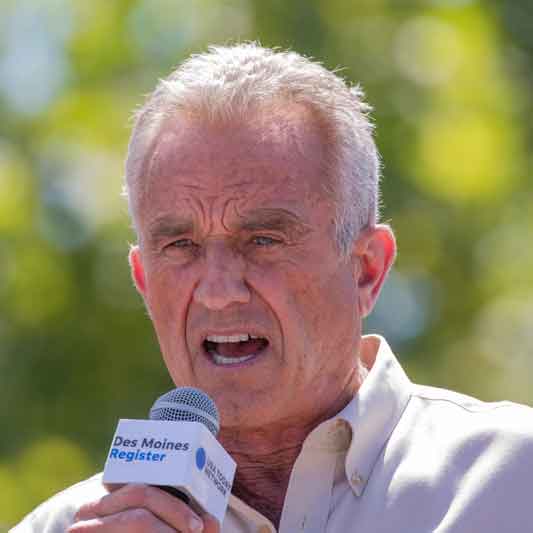President Donald Trump offered support for Health and Human Services Secretary Robert F. Kennedy Jr. following his contentious Senate Finance Committee appearance on September 4, 2025, as lawmakers from both parties questioned Kennedy’s vaccine policies and recent upheaval at federal health agencies.
Trump told reporters that Kennedy “means very well” and indicated he heard his health secretary performed well during the Capitol Hill hearing, though he acknowledged not watching the testimony directly. The president noted that Kennedy has a different perspective on vaccines and emphasized his appreciation for that distinction from conventional viewpoints.
The hearing came one week after the Food and Drug Administration significantly restricted access to COVID-19 vaccines, limiting eligibility to Americans aged 65 and older or younger individuals with underlying health conditions that increase severe illness risk. This policy change precipitated the removal of newly installed Centers for Disease Control and Prevention Director Susan Monarez and prompted four top CDC officials to resign in protest.
During the September 4 hearing, Kennedy faced sharp criticism from Democratic senators, with Oregon Senator Ron Wyden describing the United States as experiencing a health care crisis. Wyden attributed confusion and fear about healthcare decisions to Kennedy and Trump’s actions regarding vaccine policy. Kennedy defended his decisions regarding CDC leadership changes, characterizing them as necessary adjustments to restore the agency’s core mission of protecting Americans from infectious diseases.
Republican senators also expressed concerns about Kennedy’s approach. Louisiana Senator Bill Cassidy, who provided a crucial confirmation vote for Kennedy, challenged the health secretary’s vaccine policies during the hearing. Cassidy indicated he had discussed with fellow Republican caucus members the need to investigate potential changes Kennedy and the CDC committee were considering for childhood vaccine recommendations.
The controversy centers partly on Kennedy’s June replacement of all 17 members of the CDC’s Advisory Committee on Immunization Practices with his own selections, including individuals who have expressed vaccine-skeptical views and criticized mRNA COVID vaccines. This committee provides recommendations on which vaccines Americans should receive and when.
Monarez’s departure followed her refusal to support Kennedy’s vaccine policy changes and fire top officials during a meeting with the secretary in late August. Her attorneys stated she chose protecting public health over serving political interests when she declined to approve what they termed unscientific directives. White House Press Secretary Karoline Leavitt explained that Trump removed Monarez because she was not aligned with the administration’s health agenda.
The upheaval has drawn criticism from former Trump administration officials. Jerome Adams, who served as surgeon general during Trump’s first term, urged the president to fire Kennedy, stating that the health secretary was endangering Americans with his vaccine policies. Adams joined two other former surgeons general in expressing grave concerns about Kennedy’s impact on the CDC in a bipartisan opinion piece.
More than 1,000 current and former HHS employees have signed a letter calling for Kennedy’s resignation. The controversy has also divided Kennedy’s own family, with his nephew, former Massachusetts Representative Joe Kennedy III, and sister Kerry Kennedy both posting statements urging his resignation and criticizing what they view as the dismantling of critical health institutions.
Despite the criticism, Kennedy maintains support within Trump’s administration. The health secretary has indicated plans to review various vaccines through his reconstituted advisory committee, including COVID-19, hepatitis B, measles-mumps-rubella-varicella, and respiratory syncytial virus vaccines. He has expressed particular skepticism about administering hepatitis B vaccines to all newborns.
Republican lawmakers facing reelection have shown mixed reactions to Kennedy’s positions. While some acknowledge the popularity of certain aspects of his Make America Healthy Again agenda, particularly regarding food safety and chronic disease prevention, they express concern about the political implications of his vaccine policies. Polling data suggests widespread American support for childhood vaccines, creating potential electoral challenges for Republicans defending Kennedy’s approach.
The Trump administration is expected to install Jim O’Neill, currently Kennedy’s deputy at HHS, as acting CDC director to replace Monarez. This appointment would place another Kennedy ally in a key position overseeing the nation’s primary public health agency as the administration continues implementing its health policy agenda despite mounting criticism from scientific and medical communities.

